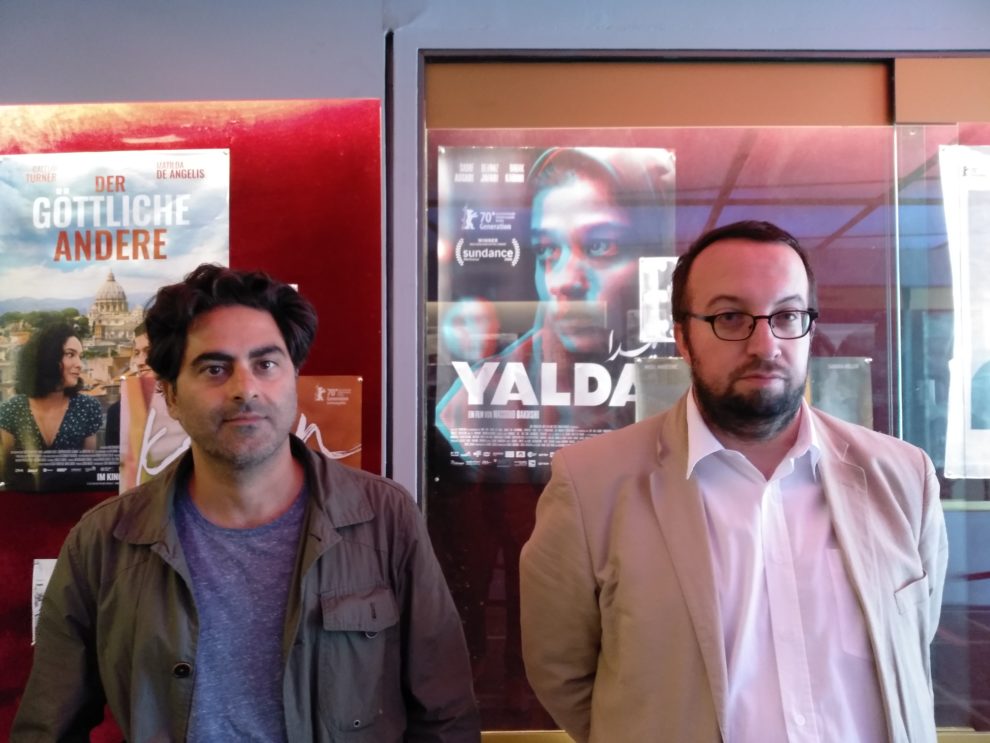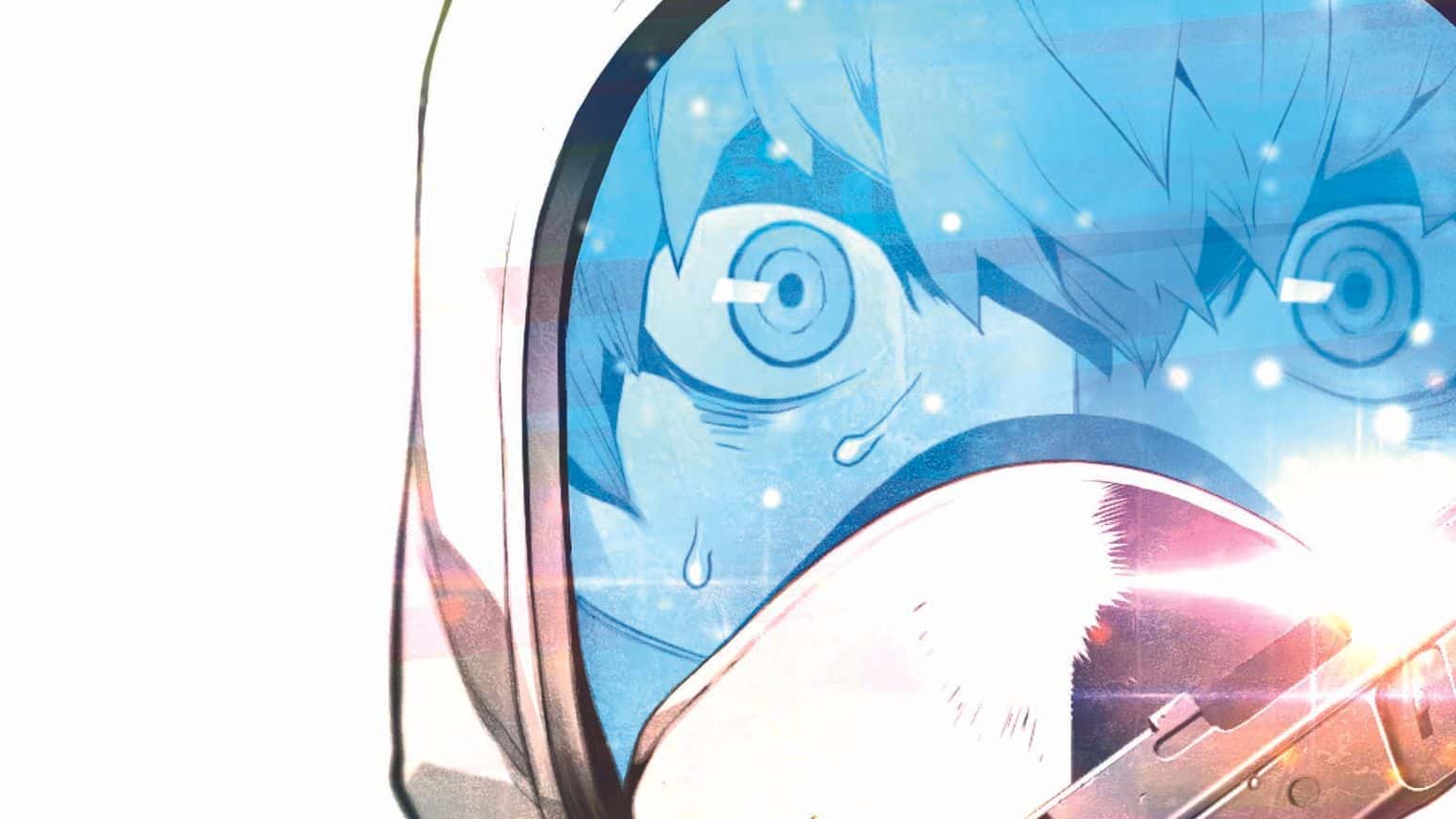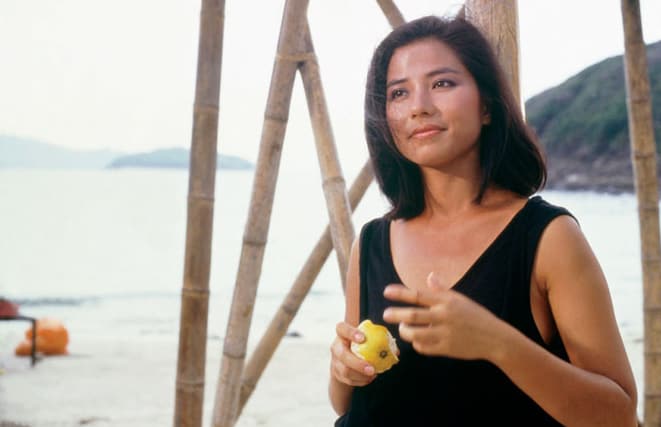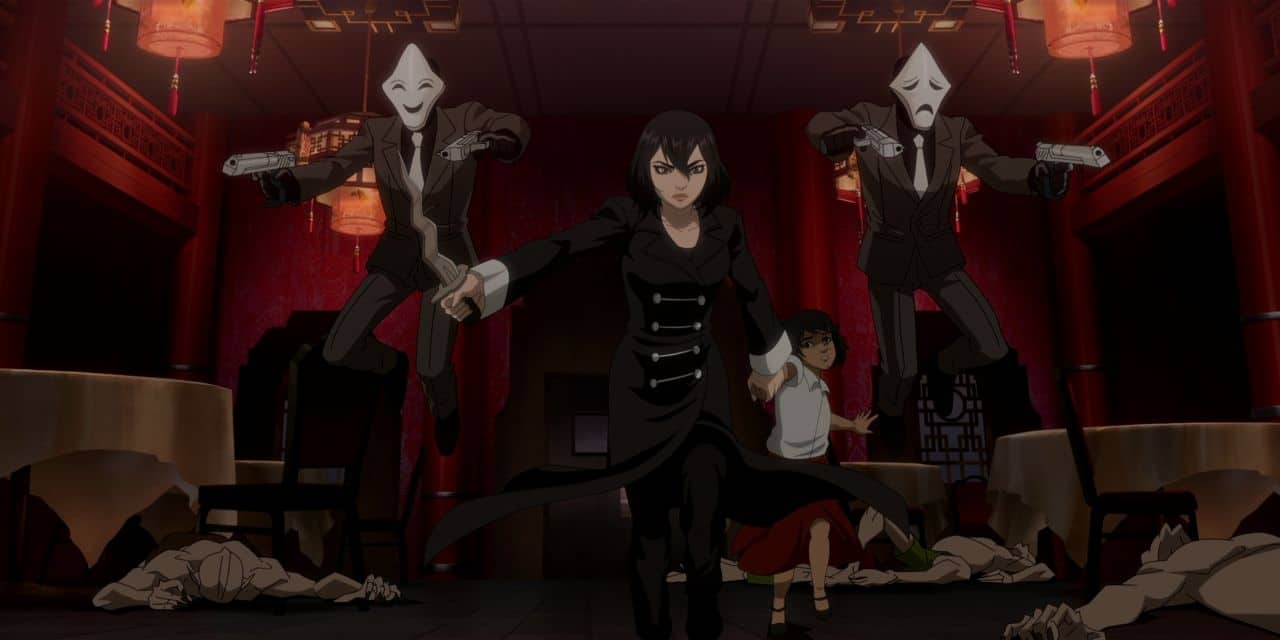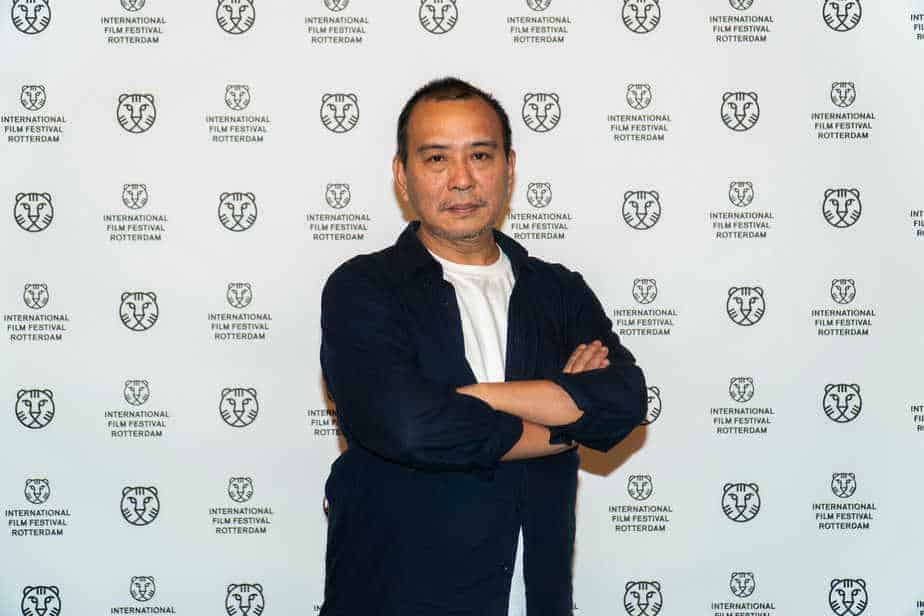Massoud Bakhshi was born in Tehran in 1972. Before he rose to international fame with his first feature “A Respectable Family” (2012), he had already made a name for himself as the director of many short features as well as documentaries. In his stories, he tackles themes of Iranian life and society.
In his 2019 feature “Yalda” he tells the story of two women, one convicted of murder and the other one the daughter of her victim, put in an unusual situation when the case is re-opened during the broadcast of a live TV show, in which the victim may be forgiven.
On the occasion of “Yalda” cinematic release in Germany, we talked with the director about the inspiration of the film, how it reflects the Iranian society, the casting process and other topics.
To begin with, could you tell us something about Shab-e Yalda and its significance for your film?
Shab-e Yalda is a pre-Islamic celebration, a Zoroastrian feast which dates back many centuries at a time when Iranians used to respect nature a lot, especially the seasons. For every season, there was a specific celebration connected to it, for example Nowruz, which is the celebration of springtime and still celebrated in many Farsi-speaking countries and cultures. Another one is Yalda, which marks the beginning of winter and also the longest night of the year. The word “yalda” means something like “big birth” because Iranians believe that after this long night, the nights will become shorter and shorter until there will be spring, sun and light. On this night, many families get together to eat dried fruit, the fruits from the past season such as watermelon, a symbol for the summer, as well as pomegranates. Some say that this celebration bears some similarity to Christian celebrations and also rituals in Pagan societies.
The show, which we see in my film, coincides with that celebration. There is this woman, an employee of the TV station, telling the producer that what they are showing is rather tragic and does not fit on this day. To the producer, this show is the only opportunity for Maryam, the woman accused of murder, to be forgiven by Mona, the daughter of the victim, whose family is leaving the country.
Is this celebration by nature also connected to the idea of forgiveness?
No, not really. It is, as I said, mainly the idea of celebrating nature and that this long night will be over at one point and there will be light in the end. But of course, since it is also a time when families get together, it intensifies the effect of a show like in “Yalda” because it also deals with family matters. If Maryam is not forgiven, it is twice the tragedy since it takes place on this day of the year which is not about sadness and tragedy. This is why the woman wearing the black chador protests to the producer, telling him this is a very sensitive matter for the people at home and their families. But the producer thinks he has no other choice than to broadcast the show.
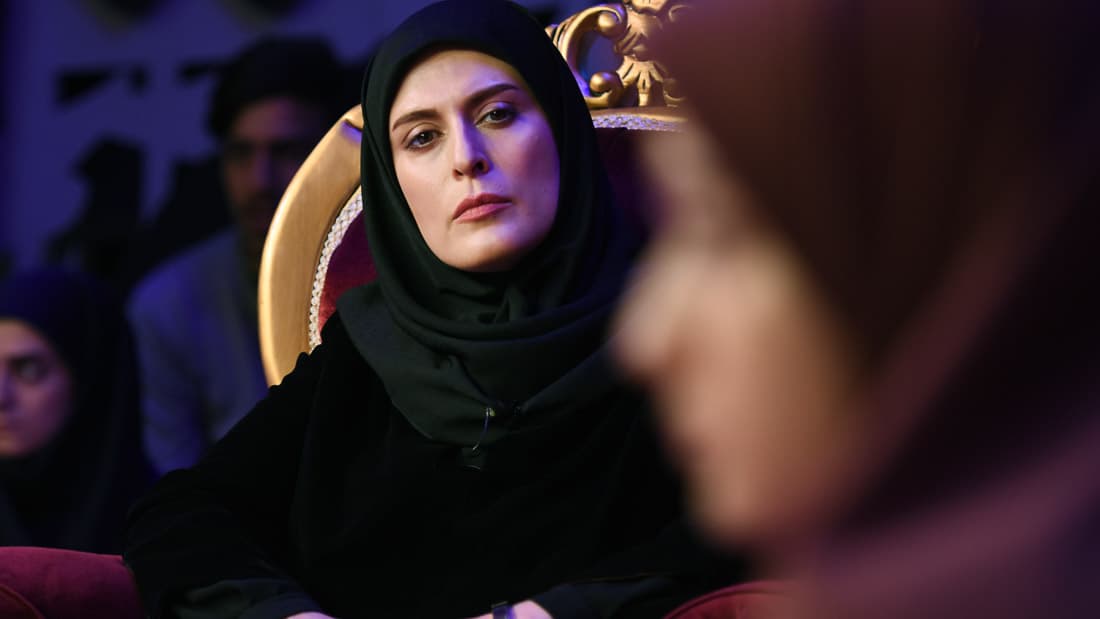
A show such as the one featured in “Yalda” is quite common in your home country. Can you tell us something about these shows and their popularity? How close is the show in the film to the real ones?
The real show was produced for around twelve years and it was aired during Ramadan every night. Its main theme was forgiveness, but not necessarily about a crime case like in “Yalda”. It dealt with many different stories and scenarios, but of course when a crime was at the center of an episode, a criminal or a murder, it was more attractive and the show gained more viewers. I watched one of these episodes and it had a profound effect on me, so that I decided to make it a part of my next project. In Iranian television, there are many similar shows, for example, those where they gather the blood money for a victim.
During my research, I found out that an Iranian television station wanted to produce a show which was quite similar to the show in “Yalda” and dealt specifically with such unintentional murder cases. The idea was also some kind of confrontation between both sides, the victim and the perpetrator, which eventually would amount to an opportunity to forgive or solving the case. They produced two or three episodes but realized it was impossible and the show was pulled.
I also talked to a lot of people and friends who work in the television industry and asked them if my idea for such a show was believable. Coming from documentary filmmaking, this was one of my biggest concerns when I started the project. They said it was quite believable, but that the subject I was dealing with was very sensitive.
What I find interesting is that after my film was released in Iran, they stopped producing the show during Ramadan which I mentioned. It was by far one of the most attractive TV formats in Iran and I somehow believe there is a correlation with “Yalda” being released and how it portrayed the world of the media.
That would indeed be quite a coincidence.
Yes, but I think it is true because “Yalda” is the only film in my home country dealing with such a subject matter. The film was co-financed by four European countries, which is quite special given there is no agreement between my home country and Europe for these sorts of arrangements, despite the quality of Iranian films. Usually, with these sorts of deals, a European production company pays part of the budget and a certain part of the crew comes from that country. But for “Yalda” I insisted on shooting the film inside Iran and with cast and crew almost exclusively consisting of locals, so in the end we only took a few people from European countries to work on the film.
Of course, I am satisfied with the end result. To deal with such a subject which is so attached to the culture of my home country is quite special.
In what way is “Yalda” a reflection on Iranian politics and society?
Politics is a big word and covers a such a broad area of themes.
Well, the narrative of the show is basically a representation of certain values which are, as you might say, just for show, whereas the real business is conducted in the control room. This to me is in some way a reflection of the field of politics in your film.
I am not sure, to me “Yalda” deals with a much more human and delicate subject matter, which is why I talked to many lawyers during my research and the scriptwriting process. All of them told me to keep in mind that a law like this is the only possibility to be forgiven and escape a death penalty. They told me to take this seriously, not make jokes about it or use the story as a platform to criticize these things.
There is a radical shift in the point of view in the story when suddenly the camera follows Mona, the daughter of the victim, more closely, whereas for the first half we concentrated more on Maryam and her family. By doing so, I want my viewer to understand these are two women in a very similar situation, they both deal with an impossible situation, and they are both under a lot of pressure.
“Yalda” is a reflection on the situation of Iranian women, their strength and how they fight for their rights. Even though they may be from different backgrounds, their fight is what unites them, in this case, to save a woman's life.
In one of the first versions of the script, the control room of the show only featured men, but when I saw a real control room, I noticed how many women work in such an environment, which is why I changed it in my script.
As a writer and director, how do you approach a story which, for the most part, takes place in enclosed environments such as the TV studio or the areas backstage?
When I made the decision to have the story take place during one episode of a TV show, I knew this was quite risky, because this kind of environment limits my possibilities as a filmmaker and takes away a lot of my advantages as a storyteller. For example, I have no or very few elements of time and place to create a certain narrative rhythm and I also could no longer rely on flashbacks, which could shed light on the quite difficult past of these characters, their family life, their childhood and how specific feelings were rooted in these past events. Most importantly, I could no longer show the actual crime which was the reason for Mayam being sentenced.
At the same time, it intensifies the story of Maryam and Mona, since they are experiencing a very intense moment in their lives. A chamber drama such as “Yalda” can create an almost claustrophobic atmosphere for the audience, which is similar to how the characters feel when they are under the spotlight, the camera is on them and millions of viewers are watching them. It emphasizes what is at stake at that moment.
I needed this kind of atmosphere and this contrast between the brightness of the show and the violence and drama of what is happening to the characters. It was a fundamental part of the mise-en-scène for the movie and together with my crew I created this atmosphere, especially by collaborating with my DP Julian Atanassov.
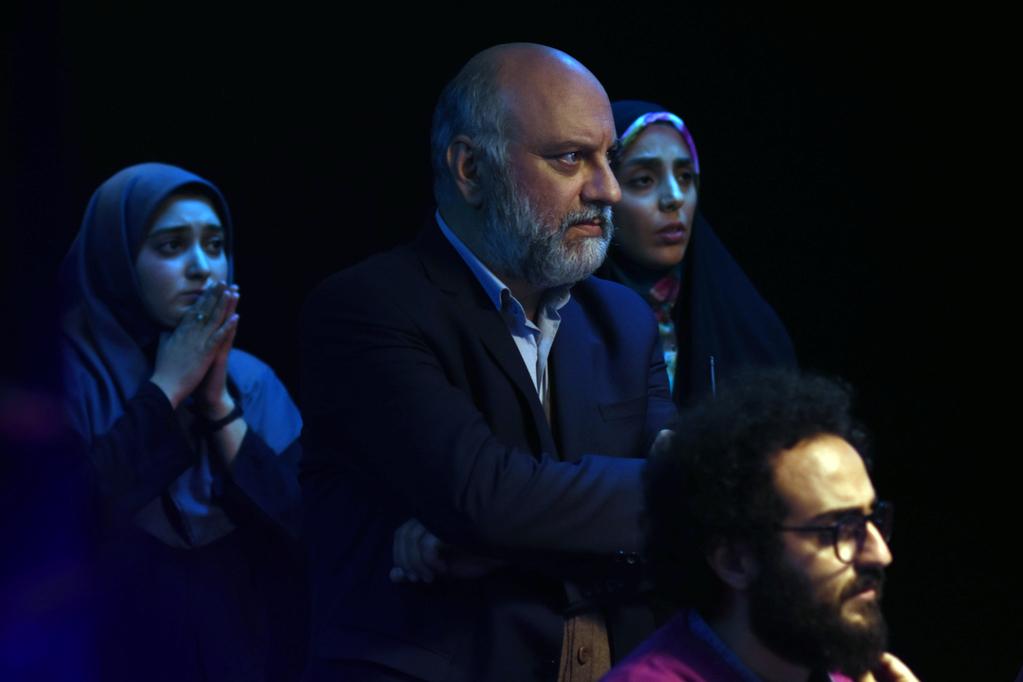
What kind of inspirations did you have? “Yalda” reminded me a lot of the kind of media drama from 1970s Hollywood such as Sidney Lumet's “Network” or even Martin Scorsese's “King of Comedy” because of its take on the media which at the same time reflected the society and other issues at the time.
You are right, Lumet was definitely an influence on the making of “Yalda”, but not so much “Network”. A film that had quite an impact on me was “12 Angry Men”, another quite intense chamber drama.
However, the biggest inspiration for me when it comes to create intense chamber drama is the work of Ingmar Bergman. It deals with the human condition, existentialism and challenges of modernity. It is not so much about media per se, but the way he looks at his characters and their world was quite influential for me.
I was not afraid to make such a film as I am quite “a good friend” of Bergman. (laughs)
Can you tell us something about the casting process and your collaboration with the actors in approaching these characters?
Casting was quite a difficult and long process. For the character of Maryam, I knew I wanted someone new and fresh, so I was looking for a young actress at the same age as the character. In Iran, we do not have many actresses who fit that profile and in the end, I studied the profiles and videos of over a thousand young people in order to find Maryam. Sadaf Asgari had previously acted only in a couple of movies and from the start she showed such an energy and commitment that I decided she was the right choice for the role.
Behnaz Jafari, who plays the role of Mona, also acted in “A Respectable Family”, my first feature film. She is a very good actress who has starred in many films, for example, Jafar Panahi's “3 Faces”, which was also released universally. Actually, when I asked her to play Mona, she was promoting Panahi's movie overseas, and so she flew back to Iran for two weeks, which was the only time she had to do some rehearsals. I remember she was quite honored when I asked her to play this role, but during rehearsals, she one time fell on her knees and started to cry and told me that this is a very difficult character to play. She realized and understood how desperate, vulnerable and lonely this person is.
During rehearsals, I asked the actors to find a role model for their character, for example, a person who actually works in a TV station, which should give them a better understanding of their role. Some of them, like the female switcher in the control room, works as a switcher in a real TV station and I simply asked her to do what she would normally do. These are just little details we added to the environment shown in the story.
Ironically, when “Yalda” was released in Iran, I was often asked by people in which TV station I shot the film and if this was a real behind-the-scenes crew in the control room. To me, this is a testament to the level of realism we applied to the roles and their work environment.
Do you have any projects or stories you are working on at the moment? Can you tell us something about them?
I am still considering myself a documentary filmmaker and there are two projects in that field which I started two years ago and which I still need to finish. In the meantime, I will take some time and work on new ideas and scripts. I am a slow worker since I take a lot of time researching for my projects, which is also quite interesting and benefits me a lot.
Thank you for the interesting conversation.


